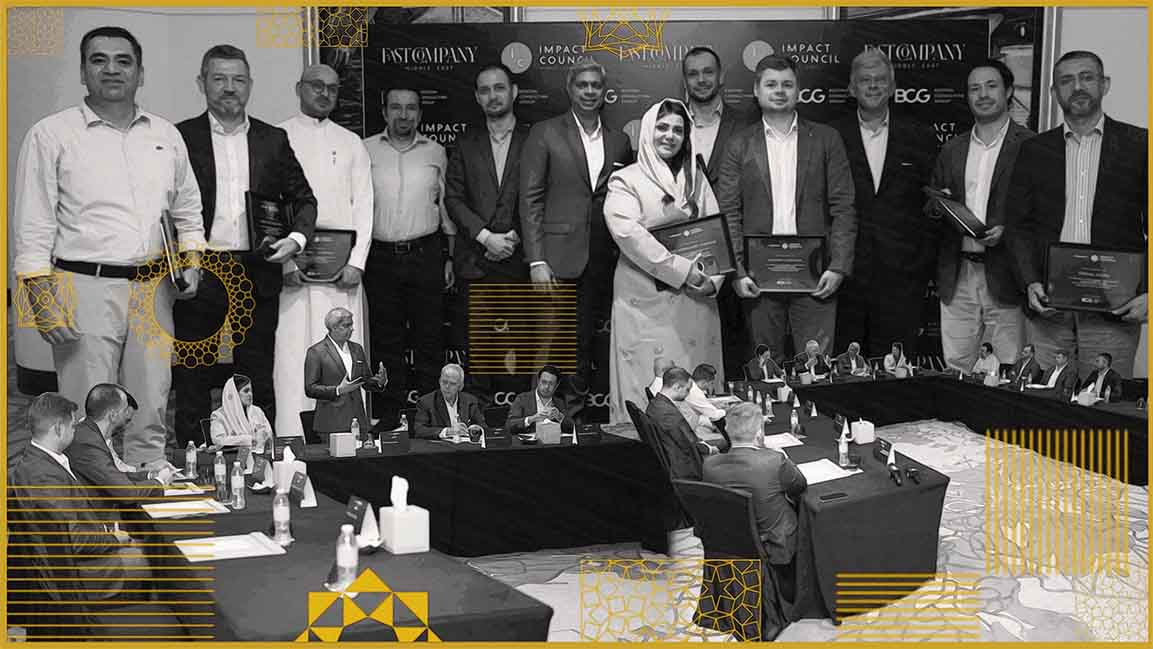- | 12:00 pm
Is the Middle East equipped to tackle potential job displacement caused by AI?
Industry experts addressed concerns and issues that arise in the face of embracing a Gen-AI led economy.

Artificial intelligence (AI) could replace approximately 300 million full-time jobs, implying that a quarter of work tasks in the US and Europe may be independent of humans, which could also mean new jobs and a productivity boom, according to a report.
Industries are cautiously approaching the generative AI wave, and members of the Fast Company Middle East Impact Council, an invitation-only group of leaders from diverse sectors, deliberated on the role of humans in an AI-driven economy.
“We are lacking in the region because of the slight delay compared to Western counterparts; this gives us the time to adapt more rapidly and efficiently than other places of the world,” said Elias Baltassis, Partner & Director, Data & Analytics, BCG X.
Companies are actively working to establish trust and confidently scale AI. Nur Aitzan, Director of Artificial Intelligence at Bupa Arabia, emphasized the significance of transparency in AI decision-making. Understanding why AI makes specific decisions is vital, as it allows regulators and businesses to adopt AI with confidence and trust in its processes.
Meanwhile, Baber Shaikh, Acting CTO/ Sr VP, Engineering at Careem, spoke about the significant focus areas within the organization. “We look at AI applications internally for developer efficiency and externally both customer-facing for commerce, search and discovery, and lasting fraud, which has been highlighted in the room today.”
Governments and societies need to collaborate to establish a comprehensive framework and policies to achieve the full potential of responsible AI. These efforts can steer innovation toward maximizing the benefits of today’s technology. Waleed I. Alsobhi, Executive Expert in Data and Analytics at Thiqah, emphasized this need for coordinated action.
As governments invest in AI research and infrastructure to transform their nations, a concern arises about job displacement.
“It’s important to upskill and reskill employees by giving them online training,” Dr.Lamya Abdulaziz AlOmair, AI & Technology Research, said.
According to Joaquin Mencia, Chief Innovation Officer, Chalhoub, addressing the ethical dilemma of AI is the most critical task.
Agreeing with him, Akram Awad, Partner – Global Lead for Smart Cities at BCG, stated, “When it comes to responsible AI, one of the key topics that we tend to look at is job replacement, which brings additional responsibility to us as we scale generative AI.”
Building on the same thread, Dmitriy Dovgan, Head of Data Science, Al-Futtaim, said, “The fears that have come with the new era of AI highlight the need to humanize and interpret what it means for a business.”
Mohammad Abeidat, Group VP of Technology at Aramex, shared the importance of building more robust data products, especially in the dilemma between AI regulations, data privacy, and responsible AI.
As we advance, Vishal Kapil, Group CIO, GMG, concluded, “As more versions of AI tools come about, we are still away from a full-blown AI-driven economy, and while we are moving in that direction, understanding and investment are key in this space.”
The Impact Council group meets multiple times yearly to address our era’s most significant opportunities and challenges. These gatherings provide a platform for networking and collaborative idea generation, fostering connections among some of the most brilliant minds in the industry.








































